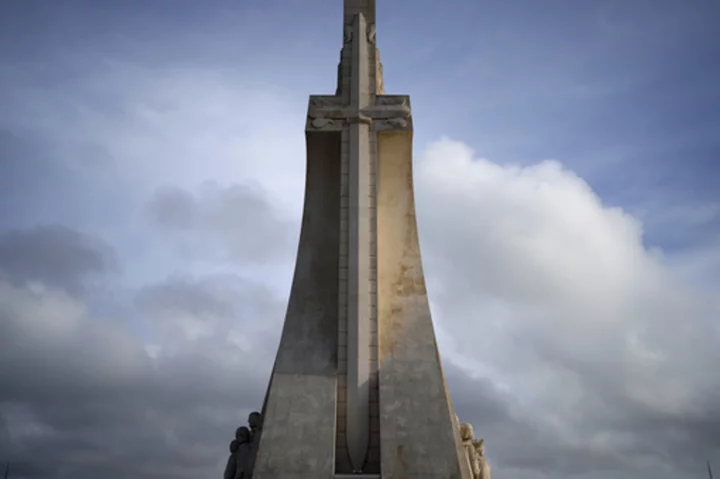ROME (AP) — The Vatican has recalled a postage stamp promoting this year’s World Youth Day in Portugal following complaints that it celebrated Portugal’s colonial empire and the nationalist dictatorship of Antonio Salazar at a time when the Holy See has been atoning for colonial-era abuses.
The stamp, which was still available for purchase online Thursday, features Pope Francis leading a group of children up Lisbon’s Monument to the Discoveries. The giant stone and concrete monument was built in 1960 to mark the 500th anniversary of the death of Henry the Navigator, one of the masterminds of Portugal's maritime expansion in the 15th century.
The monument, which is located on the north bank of the Tagus River in Lisbon, is repudiated by some in Portugal because it was built by and during the Salazar dictatorship as part the government’s push to promote national identity and feats such as the country’s colonial expansion in Africa.
The postage stamp, which features the World Youth Day logo and retails for 3.10 euros ($3.30), was issued last week by the Vatican’s numismatic and philatelic office. The office is a major contributor to the Vatican City State’s budget through its in-person and online sales of commemorative coins, medallions and stamps, which are often sought-after collectors' items.
The city state administration, however, said in a statement late Wednesday that it was withdrawing the stamp “and is in the process of providing a new stamp as a replacement.”
The controversy is particularly acute given the Vatican only in March formally repudiated the “Doctrine of Discovery,” the theories backed by 15th-century “papal bulls” that legitimized Spain and Portugal’s colonial-era conquests and seizures of lands in Africa and the Americas.
Francis, history’s first Latin American pope, has apologized repeatedly to Native peoples for colonial-era crimes and abuses committed by Catholic missionaries.
Italian media quoted a Vatican-based Portuguese bishop, Carlos Azevedo, as saying the stamp was in “poor taste” and not reflective of Francis’ message of brotherhood.
“Certainly Pope Francis doesn’t identify with this nationalist image that contradicts universal fraternity as well as his magisterium,” Azevedo was quoted as saying.
Francis is due to travel to Lisbon in August to close out World Youth Day, the weeklong youth rally that St. John Paul II launched to energize young Catholics in their faith. The event, which usually occurs every three years, was postponed for a year due to the pandemic.
Salazar governed Portugal from the 1930s to 1968 and died in 1970. A 1974 military coup toppled the dictatorship, opening the way for Portugal to pull out of unpopular wars in its African colonies and grant them independence.









